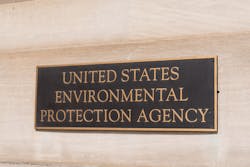Group sues EPA over lack of factory farm effluent regulations
The nonprofit Food & Water Watch recently filed suit against the Environmental Protection Agency (EPA) in the Ninth Circuit Court of Appeals over the agency’s factory farm wastewater guidelines.
Under the Clean Water Act, EPA is required to annually review, and if necessary, strengthen, industry-wide pollution standards — called effluent limitation guidelines — for factory farms, or concentrated animal feeding operations (CAFOs). These guidelines are meant to ensure CAFOs are implementing the technology and management practices necessary to reduce the amount of pollution these operations discharge into the nation’s waterways.
Food & Water Watch claim in their suit that the EPA has maintained lax pollution standards for factory farms, despite mounting evidence that the current guidelines, last updated in 2008, are ineffective.
“We have over fifteen industrial dairies in our community, and the massive amount of waste they produce is wreaking havoc on our water resources,” said Food & Water Watch member Lynn Utesch. “All three rivers running through Kewuanee County, Wisconsin are impaired with high levels of pollutants associated with CAFOs, and the burden of monitoring and responding to the problem falls on residents like us instead of the CAFO operators. EPA’s CAFO standards just don’t do enough to protect our water quality, and our community is suffering for it.”
Across the country, thousands of CAFOs produce vast quantities of manure containing pollutants like E. coli, nitrogen, phosphorous, pharmaceuticals, and heavy metals, which are discharged into waterways.
Food & Water Watch members say the EPA’s current CAFO guidelines only apply to the largest of operations, do not regulate many of the pollutants of concern coming out of these industrial facilities, and sanction manure storage and disposal practices that are known to harm water quality.
If successful, the case could have wide-reaching impact, forcing EPA to re-consider its nationally applicable CAFO guidelines.
